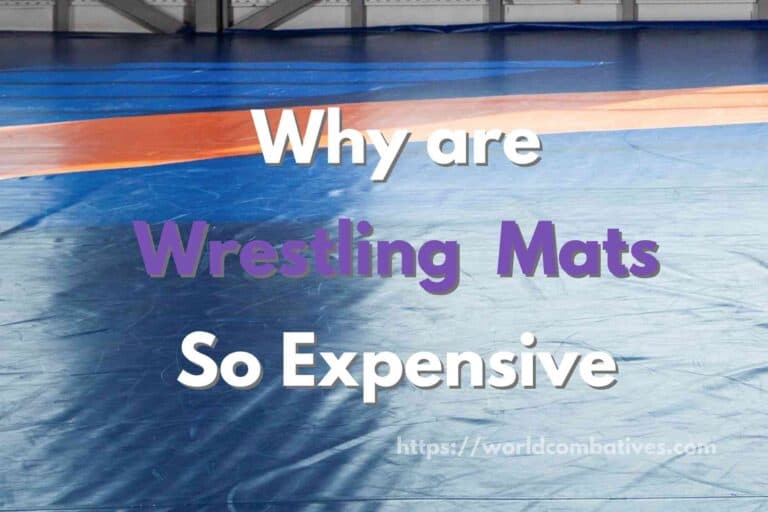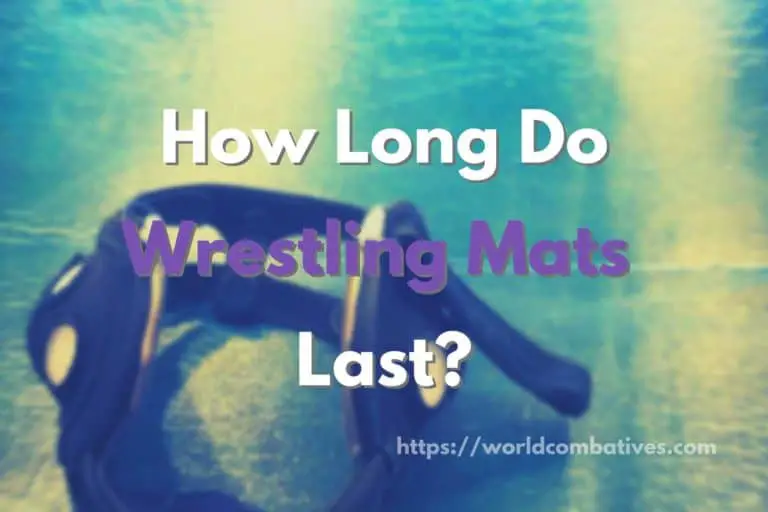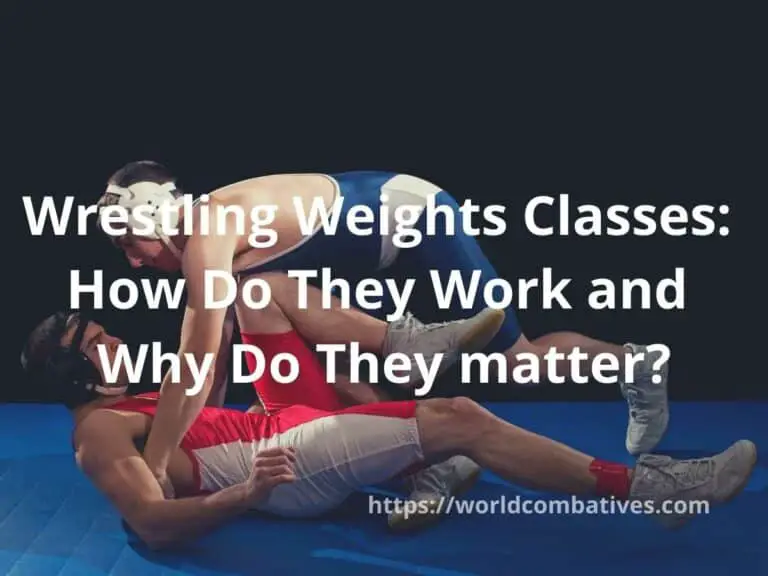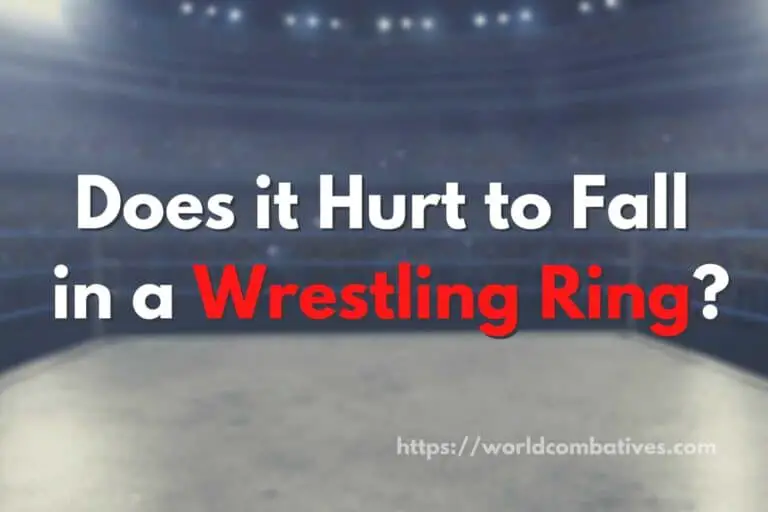The Benefits of Chewing Gum for Wrestlers: A Look Through Scientific Literature
If you’ve tried Wrestling, it is common for your colleagues to offer you some chewing gum, especially on weight management. But why? Are there benefits to chewing gums? Does science back these benefits?
Wrestlers chew gum because of its benefits, including a reduction in weight due to cutting calorie intake, reducing stress levels due to lower levels of cortisol and adrenaline, providing an energy boost because of its sugar contents, increasing basal metabolic levels, and increasing alertness and reaction time.
This post will discuss why wrestlers chew gums. We will discuss the benefits backed by scientific evidence. You may also read the research papers in the references section at the end of this post.

1. Chewing gum can Reduce Calories Intake
Chewing gum has been found to reduce calorie intake, which helps a wrestler in their weight control to pass to their corresponding weight class. This means they could eat less by chewing gum.
Studies have shown that chewing gums have a significant effect on appetite.
A randomized control trial by Physiology and Behavior found that chewing gum helps prevent the reduction of blood GLP-1 levels, which is a hormone responsible for satiety and hunger.[1]
GLP-1 is a hormone produced in the gut and released in response to food. It causes reduced appetite and the release of insulin.
By maintaining high GLP-1 levels, a person can reduce their calorie intake, which means they can lose weight faster. This also means they suffer less from hunger.
The question is, by how much?
A study from Physiology and Behavior found that chewing gum helps people reduce their calorie intake by about ~9.3%.[2]
This means we can reduce our calorie intake by 9.3% just by using chewing gums.
It is worth noting that this happens because of the reduced hormone levels related to hunger. This means they reduced their calorie intake without any additional suffering from hunger.
Thus, if you’re looking for a way to lose weight faster without increasing your hunger levels, you can try chewing gums.
However, chewing gums are a wrestler’s favorite not only because of their benefits in reducing hunger but also because they can improve their performance in matches. Let’s discuss their other benefits next.
Recommended Read: Chewing gum is a wrestler’s favorite for its benefits. However, chocolate milk is also a wrestler’s favorite for various reasons. In a separate blog post, I discussed the benefits of chocolate milk for wrestlers, also backed by scientific studies like this post. You may find it here: Why Wrestlers Drink Milk Chocolate.

2. Chewing gum helps a Wrestler Relax
Chewing gum has a calming effect. It was found that chewing gum reduces adrenaline and cortisol, which reduces stress. This helps a wrestler relax since concentration is important in wrestling matches.
A study from the Clinical Practice & Epidemiology in Mental Health found that regular use of chewing gum significantly reduced anxiety levels after only 2 weeks of use.[3]
The study also found that mental fatigue was also relieved with chewing gum.
Interestingly, chewing gum tends to lose its effect after 4 weeks of use. Thus, we have to use chewing gums at the right time.
But how do we properly time the use of chewing gums?
A study from the Journal of Clinical and Translational Research shows that abstaining for 3 days is enough, as abstaining for 7 days increases the subject’s stress levels.[4]
Interestingly, the same study also found that chewing gum reduces cortisol, which is known as the stress hormone. This further proves that chewing gum helps a wrestler relax before a match.
3. Chewing Gum Gives a Temporary Energy Boost
The sugar content of chewing gum can cause a temporary increase in energy levels since our muscles can use it as fuel.
Sugar is broken down by our body to produce energy through three metabolic processes: glycolysis, the Krebs cycle, and oxidative phosphorylation.
This means you can have more energy reserve for matches.
The benefit of energy boost coincides with the next benefit.
4. Chewing Gum Increases Metabolism
Chewing gum has been found to increase metabolism. This means your body’s biological process moves faster with the help of chewing gum.
A study from Science Advances found that chewing gum elevates metabolic rate by 10 to 15% above basal levels.[5]
Using more energy means you can have an energy boost.
This study is also interesting as an increased metabolism means chewing gum can further help in weight loss, which we discussed earlier.

5. Chewing Gum May Increase Reaction Time
Chewing gum may stimulate the brain’s frontal lobe, which plays a crucial role in physical movement.
A study published in Nutritional Neuroscience confirmed that chewing gum increased reported alertness and performance on the categoric search task.[6]
This temporarily increases alertness which is essential in Wrestling as this sport requires us to predict the opponent’s moves.
This alertness corresponds to an increase in reaction time. This means we can quickly react to enemy takedowns and execute our takedowns faster.
A separate study supports this, like the one published in Japan, where they found that gum chewing increases body reaction time.[7]
With these, you now have science-backed evidence on the benefits of chewing gum for wrestlers.
As a recap, chewing gum helps wrestlers via:
- Reducing Weight
- Reduce Stress Levels
- Provides an Energy Boost
- Increases Metabolism
- Increasing Reaction Time
What’s Next? Did you Notice that many Wrestlers spat on a bottle before a match? Why do they do it? Does spitting improve their performance? I discussed about that topic in this post: Why is Spitting Common in Wrestling?
References:
- Xu, J., Xiao, X., Li, Y. et al. The effect of gum chewing on blood GLP-1 concentration in fasted, healthy, non-obese men. Endocrine 50, 93–98 (2015). https://doi.org/10.1007/s12020-015-0566-1
- Park E, Edirisinghe I, Inui T, Kergoat S, Kelley M, Burton-Freeman B. Short-term effects of chewing gum on satiety and afternoon snack intake in healthy weight and obese women. Physiol Behav. 2016 May 15;159:64-71. doi: 10.1016/j.physbeh.2016.03.002. Epub 2016 Mar 3. PMID: 26948161.
- Sasaki-Otomaru, A., Sakuma, Y., Mochizuki, Y., Ishida, S., Kanoya, Y., & Sato, C. (2011). Effect of Regular Gum Chewing on Levels of Anxiety, Mood, and Fatigue in Healthy Young Adults. Clinical Practice and Epidemiology in Mental Health : CP & EMH, 7, 133-139. https://doi.org/10.2174/1745017901107010133
- Smith, A. P. (2016). Chewing gum and stress reduction. Journal of Clinical and Translational Research, 2(2), 52-54. https://doi.org/https://www.ncbi.nlm.nih.gov/pmc/articles/PMC6410656/
- van Casteren, A., Codd, J. R., Kupczik, K., Plasqui, G., Sellers, W. I., & Henry, A. G. (2022, August 19). The cost of chewing: The energetics and evolutionary significance of mastication in humans. Science Advances, 8(33). https://doi.org/10.1126/sciadv.abn8351
- Allen AP, Smith AP. Effects of chewing gum and time-on-task on alertness and attention. Nutr Neurosci. 2012 Jul;15(4):176-85. doi: 10.1179/1476830512Y.0000000009. Epub 2012 Apr 3. PMID: 22583804.
- Kurokawa, K, Nakajima, K, Maeda, M, Takeda, T, & Ishigami, K. (2008). The effects of gum chewing on the body reaction time. https://hdl.handle.net/10130/688







